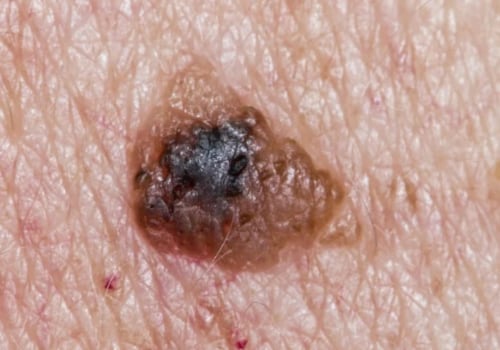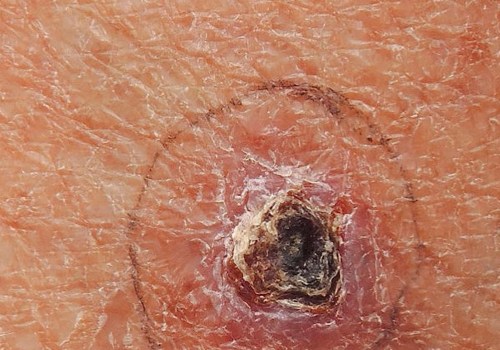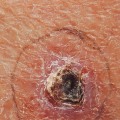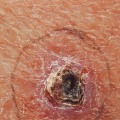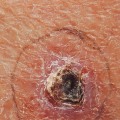Skin cancer is the most common type of cancer in the United States, and it is a disease in which malignant cells form in the tissues of the skin. It can occur on any part of the body, but it is most commonly found on areas that are exposed to the sun, such as the face, neck, arms, and hands. There are three main types of skin cancer: basal cell carcinoma, squamous cell carcinoma, and melanoma. Basal cell carcinoma is the most common type and is usually found on areas of the body that are exposed to the sun.
It is usually slow-growing and rarely spreads to other parts of the body. Squamous cell carcinoma is also a common type of skin cancer and is usually found on areas of the body that are exposed to the sun. It can spread to other parts of the body if not treated early. Melanoma is the least common but most serious type of skin cancer.
It can spread quickly to other parts of the body if not treated early. Skin cancer can be caused by exposure to ultraviolet (UV) radiation from the sun or from tanning beds. People who have fair skin, light-colored eyes, and blond or red hair are more likely to develop skin cancer than those with darker skin. Other risk factors for skin cancer include a family history of skin cancer, a weakened immune system, and a history of sunburns. The best way to prevent skin cancer is to protect your skin from the sun's harmful UV rays. This includes wearing protective clothing such as long-sleeved shirts and wide-brimmed hats, avoiding direct sunlight during peak hours (10am-4pm), and using sunscreen with an SPF of at least 30.
It is also important to check your skin regularly for any changes in moles or other marks on your skin. If you notice any changes in your skin or moles, it is important to see a doctor right away. Your doctor will examine your skin and may recommend a biopsy if they suspect that you have skin cancer. Treatment for skin cancer depends on the type and stage of the cancer, but may include surgery, radiation therapy, chemotherapy, or immunotherapy. Skin cancer can be a serious condition if not detected and treated early. By following these simple steps, you can help protect yourself from developing this potentially deadly disease.

